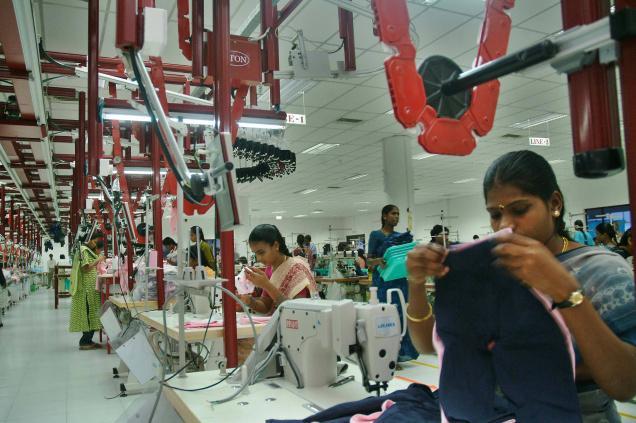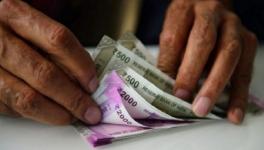Weavers to Fashion Designers, GST Spares No One in Textile Industry

From weavers to traders to fashion designers, the past year has wreaked havoc across the textile industry – thanks to the shock of demonetisation announced on November 8 last year, followed by the introduction of the Goods and Services Tax (GST) this July.
The complicated compliance burden of the GST regime has seen chaos and protests erupt in different industrial sectors, and the textile industry has been among the worst hit.
From the textile traders protesting in the man-made fabric (MMF) hub of Surat and Ahmedabad in Gujarat, to the uncertain futures of weavers in Varanasi – no one in the industry has been left untouched.
Even though the GST Council on October 6 announced a reduction in tax rates on MMF from 18% to 12%, traders remain unhappy.
And the case of fashion designers is no different, reports the IANS.
The news agency quoted fashion designer Rahul Mishra as saying that demonetisation followed by GST had disrupted the business.
But he told the IANS that the maximum stress was felt by weavers, embroiderers, tailors and craftspersons.
“There were a lot of times that my employees – like tailors and embroiderers – could not go to the bank. Demonetisation impacted them badly,” Mishra told the news agency.
Although the designer claimed he was not against GST, he went on to describe the difficulties GST had caused: “We work with handmade clothes and labour is intensive. So if I supply merchandise worth Rs 1 crore, then 12% needs to be paid upfront as GST. Next month, again if I am supplying, then I have to pay 12%, so I have to pay so much to GST and then wait for the sale to happen."
Mishra said the government should encourage the handmade cloth industry by bringing in separate laws for it. “I want to pay taxes on what I am selling because if I am not selling, then business is less, opportunity is less and so is potential for employment,” he told IANS.
The news agency cited a report by the Investment Information and Credit Rating Agency of India (ICRA), which states that the Indian textiles and apparel industry, which accounts for almost 24% of the world's spindle capacity and 8% of global rotor capacity, has been struggling due to the impact of demonetisation and GST.
The ICRA report stated the disruptions caused by the note ban and the transition to the GST regime had “narcotised the Indian apparel and fabric industry”, writes IANS.
Other designers too have been witnessing reduced business, even during the festive season around Diwali, as per the IANS.
The agency quotes designer Samant Chauhan as saying that post-demonetisation, the prices of yarns and fabric went up. “Only those people survived who had systems (workstations and mills). There was a huge crunch of fabric as most of the weavers were in the bank getting their cash. When things normalised, the prices went up,” Chauhan told IANS.
Sunil Sethi, president of Fashion Design Council of India (FDCI), the country’s apex fashion body, also admitted to IANS that sales had suffered due to demonetisation and GST.
Menswear designer Pawan Sachdeva told IANS that the steep decline in cash flow had resulted in luxury fashion market sales being slashed by nearly 80%. “The effect of demonetisation has lingered even after a year. The luxury market has faced a major slowdown. Even as the effects of demonetisation hadn't lessened, GST was introduced as a new policy, slowing the market even more,” he said.
(The IANS is running a series of demonetisation articles leading up to November 8, and Newsclick is using material from the series.)
Get the latest reports & analysis with people's perspective on Protests, movements & deep analytical videos, discussions of the current affairs in your Telegram app. Subscribe to NewsClick's Telegram channel & get Real-Time updates on stories, as they get published on our website.
























